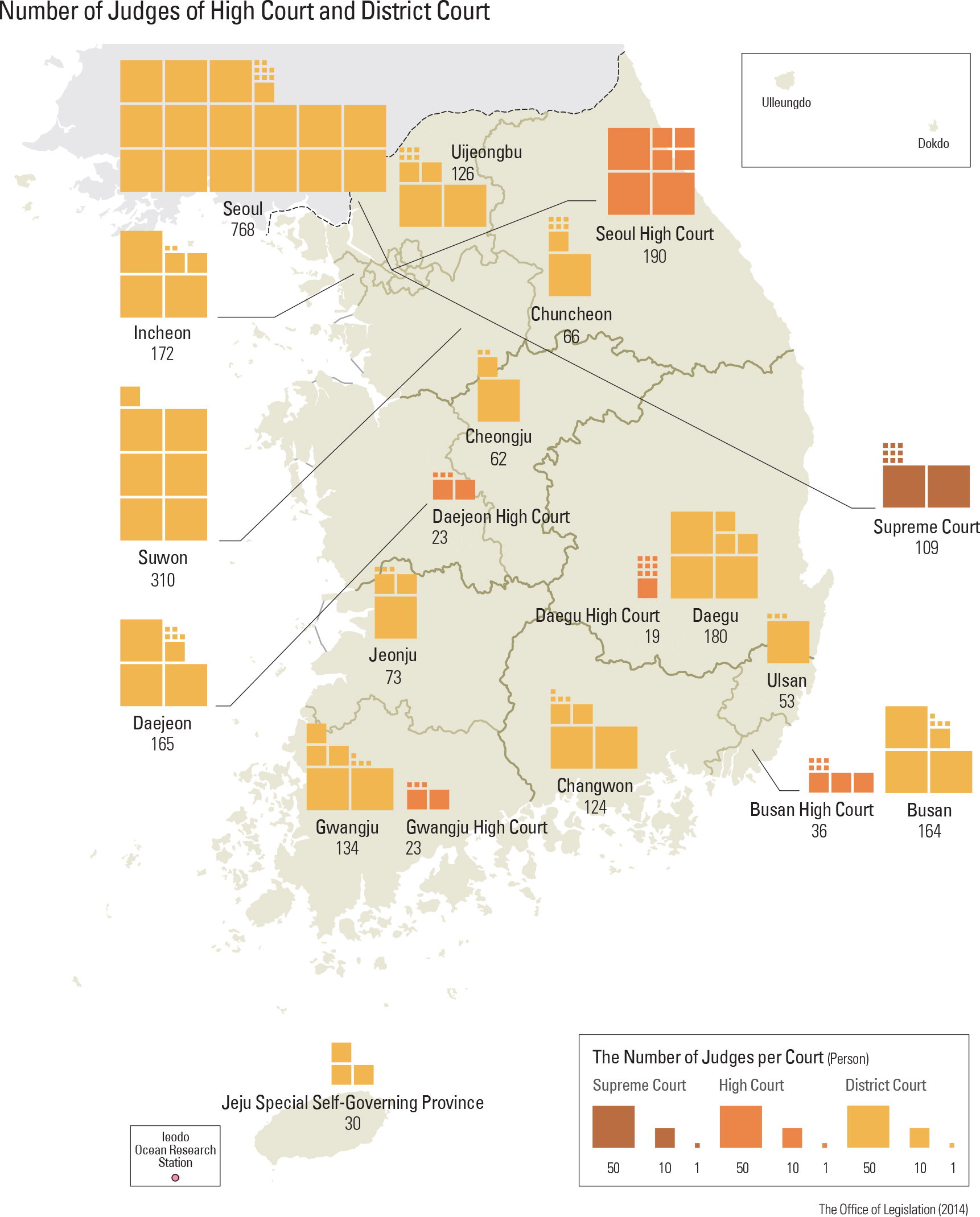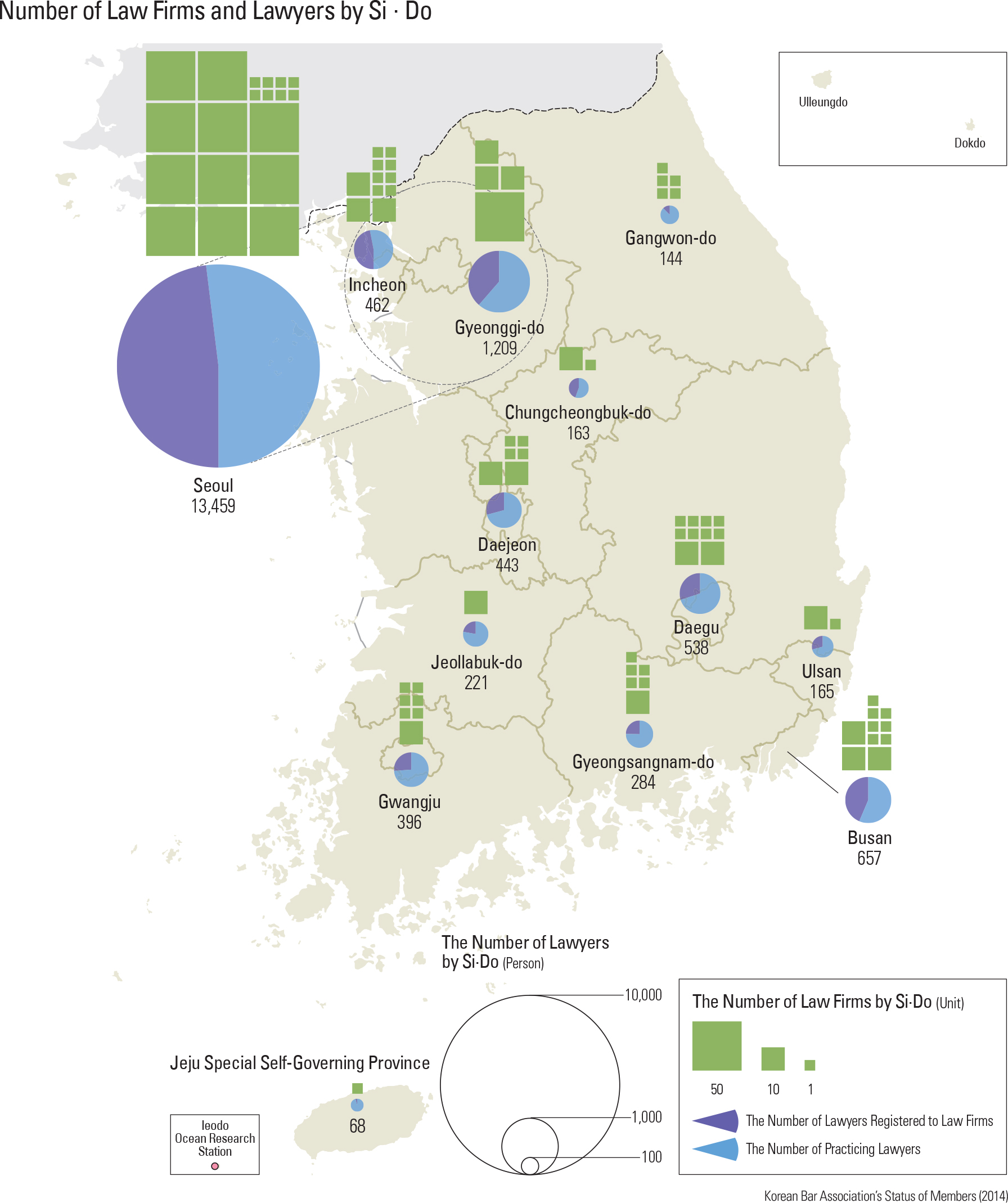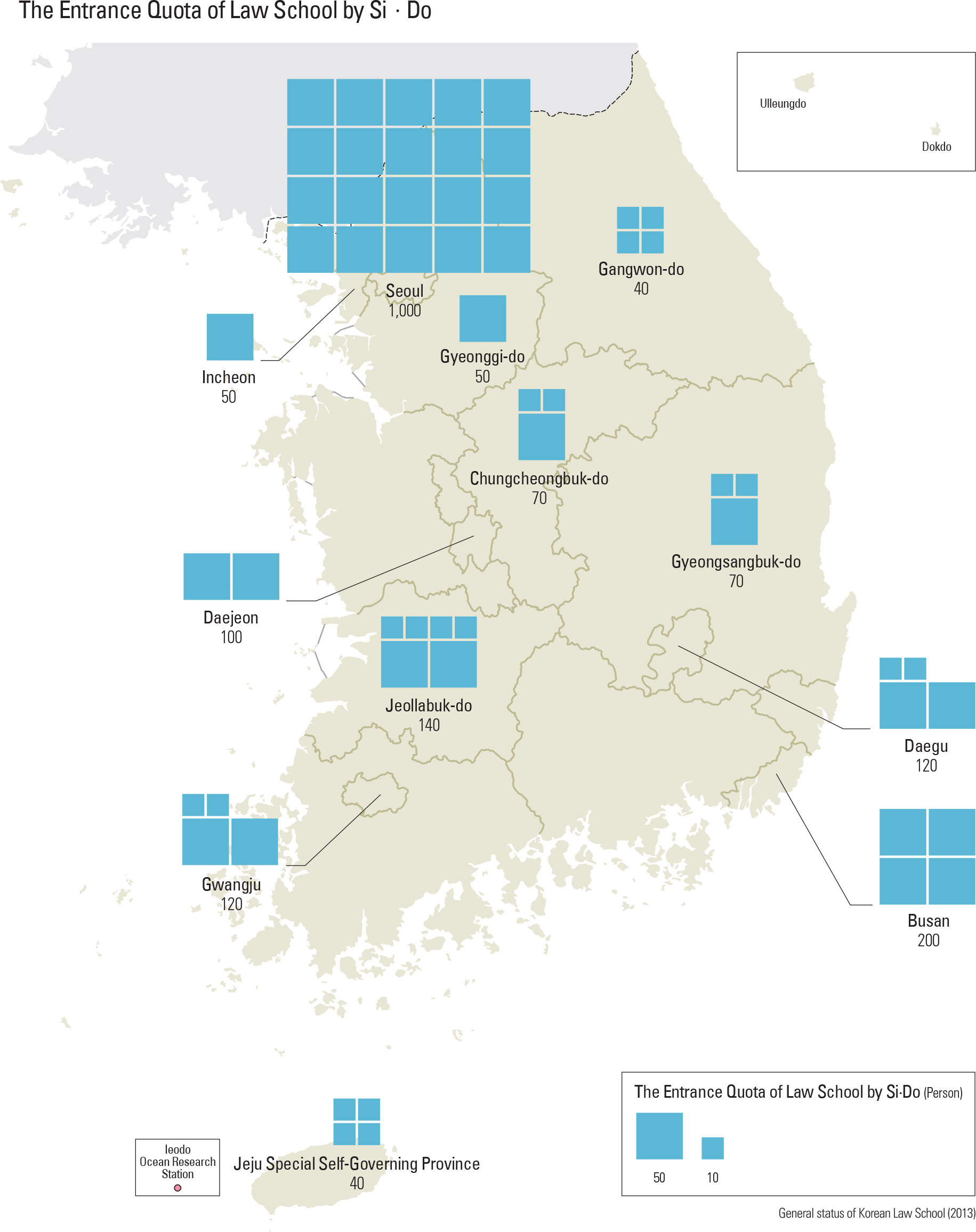The courts judge, in principle, all legal disputes on the basis of the Constitution. The courts also have the jurisdiction over controlling and monitoring the registration of real estate, movable assets and receivables, family relations, deposits, as well as bailiff and judicial transcription.
The trial, which is the most fundamental duty of the courts, is handled by a single judge or a panel consisting of three judges. Court hearings and trials are open to the public and the Korean language is used. Judges are responsible for the hearing and decision of a trial except in the military court. Since 2013, judges have been appointed among those who have a judicial career of 3 years or more. Previously, judges were appointed among the candidates who passed the bar exam and completed training at the Judicial Research and Training Institute. Since the introduction of the Civic Participation in Criminal Trials system in 2008, ordinary citizens have participated in select criminal trials. The Civic Participation in Criminal Trials is a unique system that appropriately modified and improved both the jury system and layman judge systems. In the Civic Participation in Criminal Trials system, a jury judges a case independently of the judge. In the case of disagreement on guilt or innocence with a judge, the jury is asked to judge again after hearing the judge’s opinion and relevant evidence. A jury does not need to reach a unanimous decision. They judge a case accepting the majority opinion. In addition to determining guilt or innocence, a jury can also suggest terms of punishment. A judge is not subject to the jury member’s opinion on the verdict or the punishment. Currently, the Civic Participation in Criminal Trials system is an option offered only when the accused asks for this procedure at the collegiate court during the process of a criminal case.
The courts are a national organization that handles the registration of real estate, movable assets and receivables, and ships. District Courts and Branches of District Courts provide the registration service because registration is, unlike simple works of administrative civil affairs, a quasi-judicial process wherein the complex interests of different groups are interwoven. District Courts have a registration office as an affiliated organization to handle part of the administration of registration within their jurisdiction. A registration office handles commercial, real-estate, and ship registrations, and issues registration certificates, authentication certificates of seal and date-fixed stamps on private documents.
The courts are responsible for the administration of family-relation registration that replaces the patriarchal family system. Family-relation registration is the system that registers citizen’s status individually to the family-relation registration record and officially certifies the record. This is completely different from the patriarchal family system that classified a citizen’s status relation by the head of the family. Family-relation registration (previously patriarchal family registration work) is administrated nationally, and the Supreme Court is appointed to act as the responsible unit to handle the family-relation registration. The Supreme Court delegates the authority of registration to the head of administrative units (si·gu·eup·myeon), for the citizen’s convenience.


